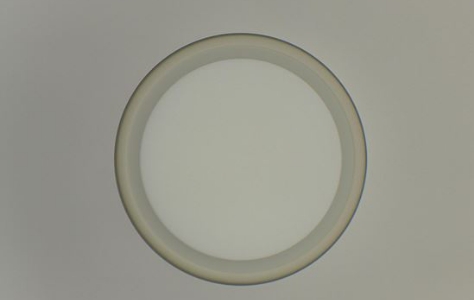
Products & Technology
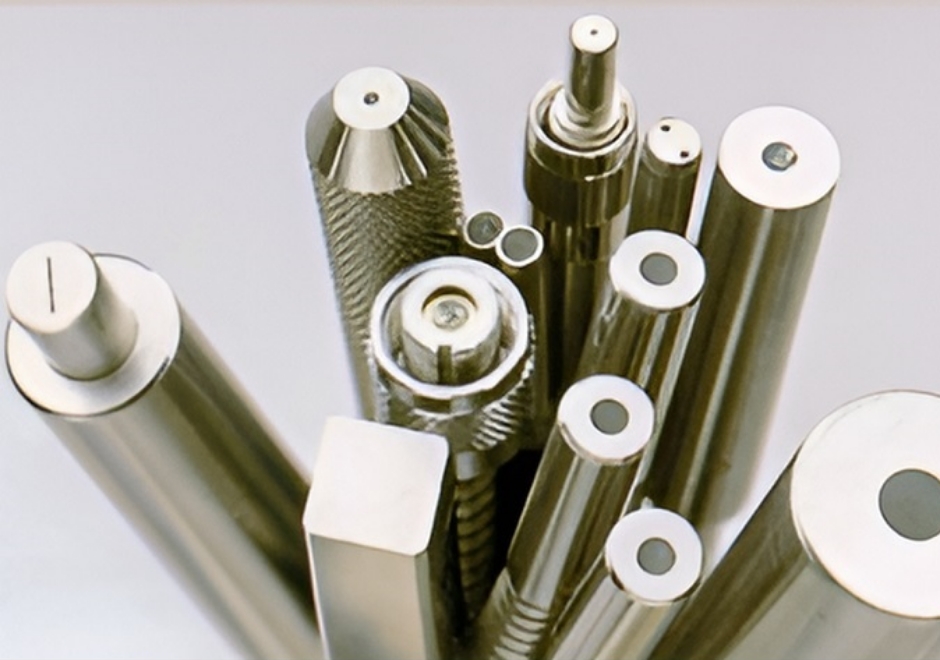
Optical Fiber Bundle
A fiber bundle is an assembly of 2 or more optical fibers in a sleeve or with a connecter attached to the ends of the bundle.
Bundling thin optical fibers allows us to bend them at a smaller radius than a thick single fiber, which is effective when the application requires sending a lot of light, collecting weak light emissions, or spatially distributed light.
Also, bundled fiber can change the light emission shape through alignment of the fibers in a straight line or in a rectangle, and bundles can split the light path by setting up branching points. For these points, the bundled fiber can easily match any connected equipment requirements.
- In-house and integrated production
- Customizable
Features
Available for light transmission
Available for light transmission over a wide wavelength range from deep ultra violet (DUV) to near infrared (NIR).
Customized fiber arrangements
Customized fiber arrangements for your application needs
High precision arrangement
High precision arrangement of the optical fibers is available.
AR (Anti-Reflective) coating
AR (Anti-Reflective) coating of the fiber tips is available for some products(Option). Please ask for more details.
Application Examples
Simpler Optical System
Bundled fiber can replace mirrors used to direct the light path. Optical axis adjustment is unnecessary for bundled fiber.
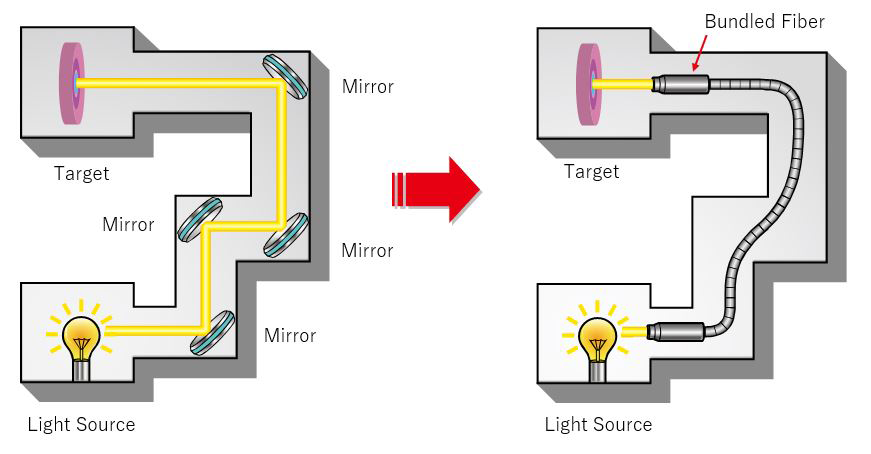
Uniform Beam Emission
The beam intensity distribution of a mercury lamp or halogen lamp is non-uniform due to their filament structure. Using a bundled fiber with a “random array” fiber arrangement helps to uniformize the beam emission.
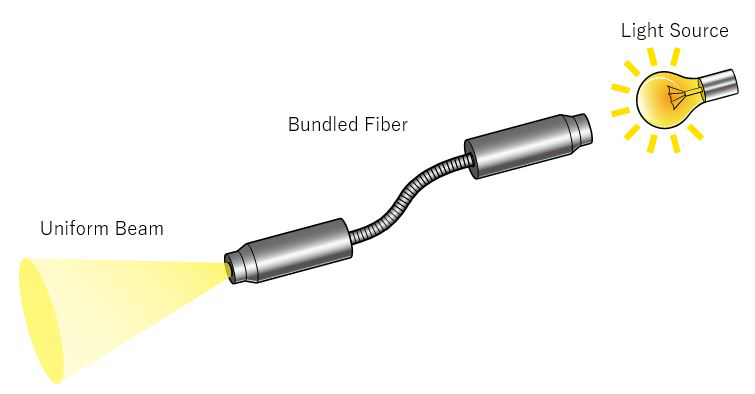
Light Combination and Splitting
It is possible to either combine or split light by using a bundled fiber.
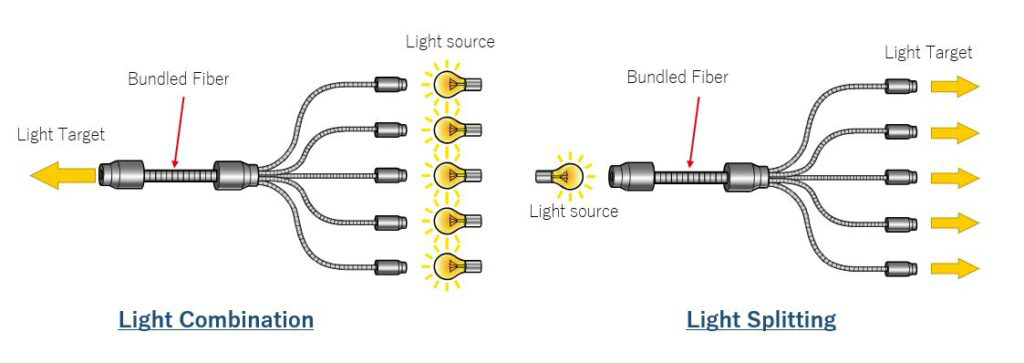
Product Examples
Straight Type Bundle
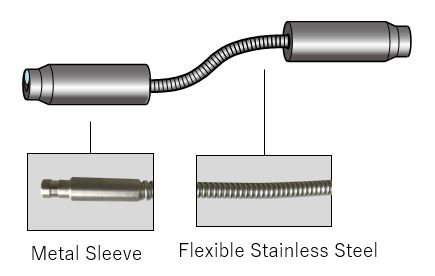
High Precision Array
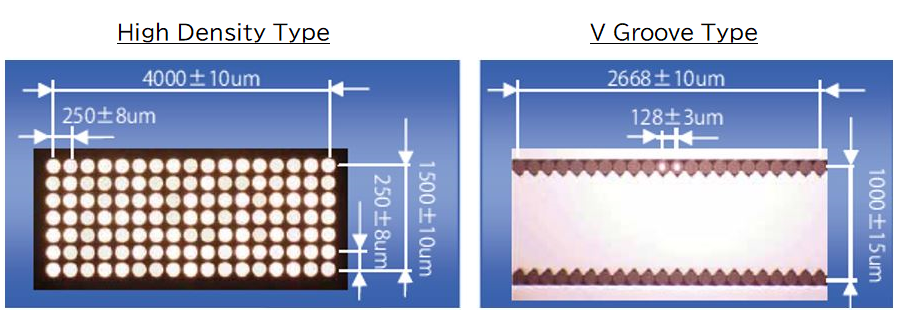
As the above photographs of product examples show the fibers can be precisely arrayed.
A Fiber Bundle is composed by a few to tens of thousands raw fibers, metal sleeves, flexible stainless steel tube and the like. It is possible to arrange the bundle in many fiber paths such as a straight type or a branch type. The individual fibers in can also be arranged in various array types as well as shown on above pictures.
When communicating your requirements it is best to communicate your desired arrangement with simple drawing. This way our engineers can work together on a design and specification with you.

